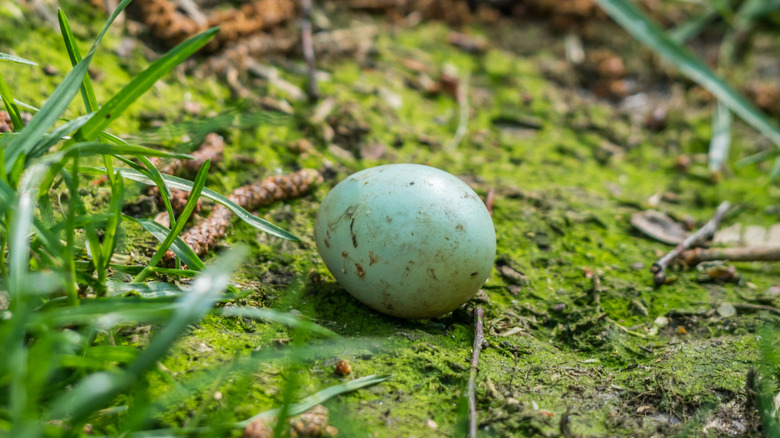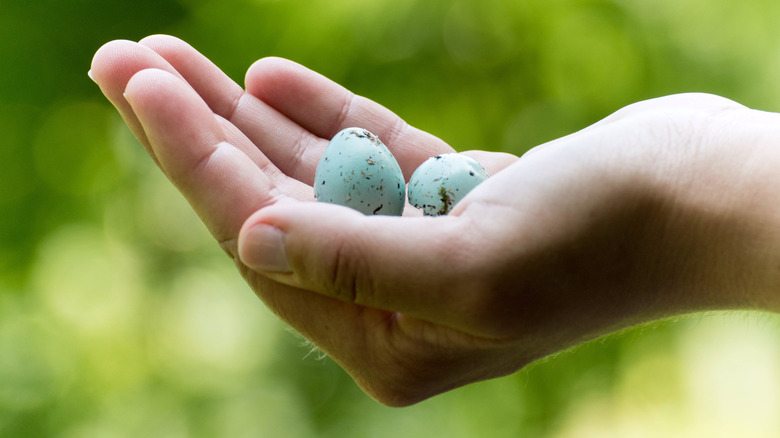Exactly What To Do If You Find A Bird's Egg In Your Yard
If you adore feathered creatures, attracting a variety of birds to your yard might sound like pure bliss. But what if you discover one of their eggs on the ground? A lot of us have the natural instinct to help animals in distress, especially when they're babies. Your first thought might be to scoop up the egg to rescue it. Often, though, the best course of action in a situation like this is to do nothing at all. Even if you want to help the egg find its home, there could be a reason it's on the ground, and the ground could even be its intended home. Not to mention, it could be illegal for you to keep the egg and attempt to hatch it yourself.
Try to identify the bird egg by searching online or in a field guide. If you're certain the egg came from a nest that you can see, it's okay to carefully put it back — contrary to popular belief, touching a bird's egg does not mean that adult birds will automatically abandon it. But before you pick up the egg, consider that it could be from a ground-nesting bird, meaning the egg was intentionally laid in that spot. It could have also been purposefully knocked out of the nest. If you find an egg laying on the ground, wildlife experts generally recommend leaving it alone, especially since handling it could go against the Migratory Bird Treaty Act.
Why it's best to leave bird eggs alone
According to the U.S. Fish & Wildlife Service, the Migratory Bird Treaty Act states that "No person may take (kill), possess, import, export, transport, sell, purchase, barter, or offer for sale, any migratory bird, or the parts, nests, or eggs of such bird except as may be permitted under the terms of a valid permit." This means that if you took an egg home that was intentionally laid on the ground, or you accidentally placed it in a different bird's nest where it shouldn't be, you'd be breaking the law. Even if you were simply trying to help save the egg, moving it could lead to the baby bird's demise, which would be illegal.
If you feel the egg on the ground is in danger, like if it's in an area that is scheduled to be landscaped, you can call your local wildlife rehabilitation center or other animal professionals for help. For those interested in helping our feathered friends, consider making other efforts like placing a birdbath in your yard, planting native plants that act as a food source, or offering safe habitats like nest boxes. You can even use common items around the house that will have birds flocking to your yard.
Remember to leave the egg alone unless you are certain you know exactly where it came from. The parent bird won't necessarily reject the egg because you touched it, but it might be non-viable, in which case the parent bird will once again remove it. Sometimes the best approach is to let nature take its course. The worst case scenario is that it becomes part of the food chain for another creature.

